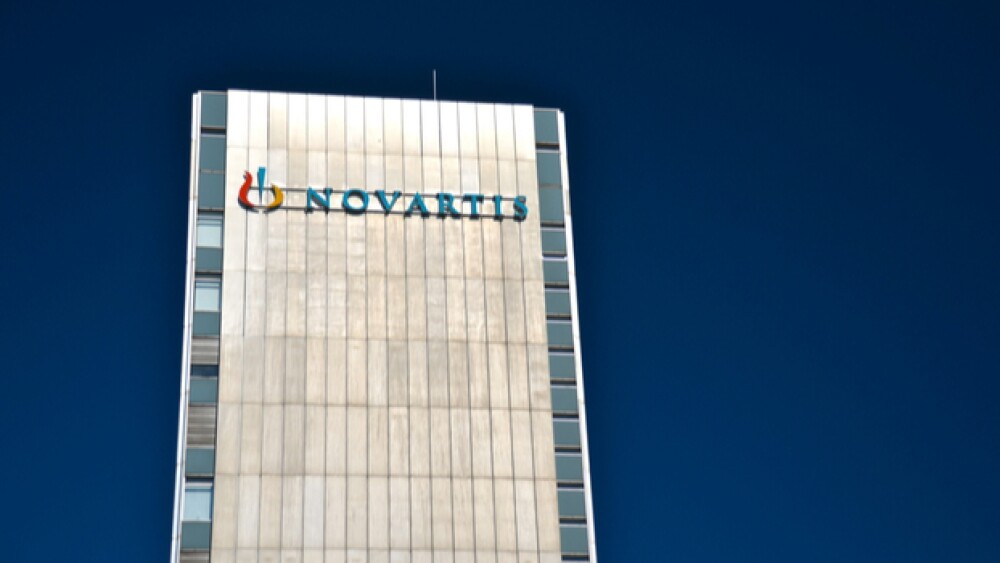Novartis inked an exclusive worldwide license and collaboration deal with Australia-based Mesoblast to develop, commercialize and manufacture remestemcel-L for acute respiratory distress syndrome (ARDS), including when it is linked to COVID-19.
lucarista / Shutterstock
Novartis inked an exclusive worldwide license and collaboration deal with Australia-based Mesoblast to develop, commercialize and manufacture remestemcel-L for acute respiratory distress syndrome (ARDS), including when it is linked to COVID-19. The company plans to launch a Phase III trial in non-COVID-19-related ARDS shortly after closing the deal. The drug is currently being evaluated in a Phase III trial in COVID-19-related ARDS.
Under the terms of the deal, Novartis acquires exclusive worldwide rights to develop, commercialize and manufacture remestemcel-L for ARDS. They are paying Mesoblast $25 million up front and will invest $25 million in Mesoblast equity along with additional pre-commercialization milestone payments that could total $505 million and post-commercialization milestones up to $750 million. They are also eligible for royalties. Novartis will offer support for commercial manufacturing scale-up. Novartis also has an option to distribute the drug for graft versus host disease (GVHD) outside Japan. Both companies have rights to co-fund development and commercialization for other non-respiratory indications.
In addition, Novartis will reimburse Mesoblast up to $50 million on hitting specific milestones associated with the next-generation manufacturing processes using its proprietary media and three-dimensional bioreactors. Novartis will handle any capital expenditures needed to meet increased capacity for manufacturing.
Remestemcel-L is made up of culture-expanded mesenchymal stromal cells derived from the bone marrow of an unrelated donor. The companies believe it has immunomodulatory properties that can counteract the overactive immune reaction known as a cytokine storm that is linked to COVID-19 and other inflammatory conditions. They believe it down-regulates the production of pro-inflammatory cytokines and increased production of anti-inflammatory cytokines.
“We believe that Novartis is uniquely placed to advance this important potential new therapy,” said John Tsai, head of Global Drug Development and chief medical officer for Novartis. “Novartis is committed to, and has demonstrated success with, cell-based therapies and transforming care for a spectrum of respiratory diseases.”
He goes on to say, “This makes remestemcel-L an important addition to our pipeline. It has the potential to be the first treatment for the most critically ill ARDS patients, and it provides us with an opportunity to apply years of specialized experience directly to the work of savings lives.”
An open-label compassionate use program was initiated in March that included 12 patients with COVID-19-associated ARDS. The patients were on mechanical ventilation. The therapy was associated with an 83% survival rate. This supported the launch of the Phase III study, which is evaluating 300 patients and is being run in collaboration with the Cardiothoracic Surgical Network. They are expecting the trial to be done in early 2021.
Novartis and Mesoblast, after both the deal and the trial are finished, expect to work together to initiate a Phase III trial of the drug in non-COVID-19-related ARDS.
Another of Novartis’ cell therapies, Kymriah, is unique to each patient. However, remestemcel-L does not have to be tailored for each patient, which should cut production time and costs.
“Our collaboration with Novartis will help ensure that remestemcel-L could become available to the many patients suffering from ARDS, the principal cause of mortality in COVID-19 infection,” said Silviu Itescu, chief executive officer of Mesoblast. “This agreement is in line with our corporate strategy to collaborate and partner with world-leading major pharma companies in order to maximize market access for our innovative cellular medicines.”





